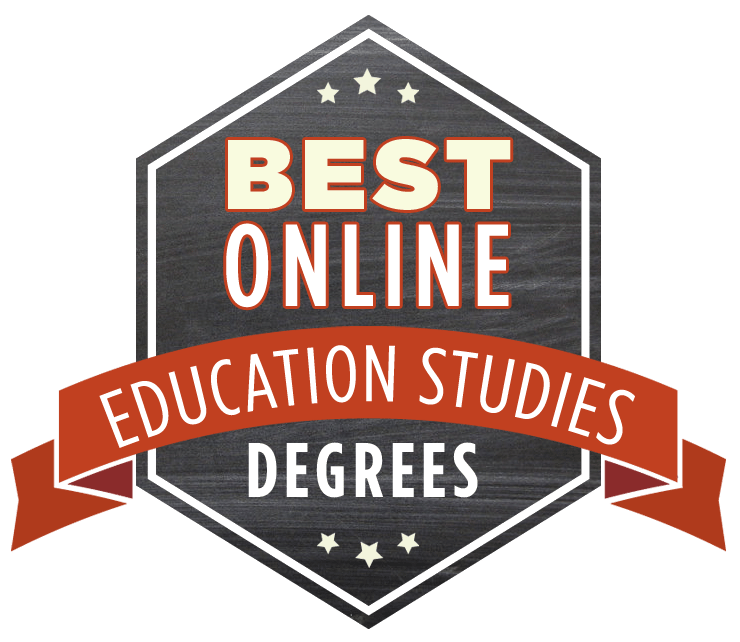Onlinemaster opens the door to a world of opportunities for those seeking advanced education while balancing professional responsibilities. In today’s competitive job market, obtaining an online master’s degree is not just a trend but a necessity for career advancement and personal growth. The flexibility of online programs allows working professionals to enhance their skills without compromising their current roles, making education more accessible than ever.
With a plethora of fields available for study and accredited universities offering specialized programs, students can tailor their education to fit their career aspirations. This combination of flexibility and variety means that pursuing an online master’s degree can significantly boost one’s employability and lead to greater job satisfaction.
Importance of Online Master’s Programs
In an increasingly competitive job market, obtaining an online master’s degree has become a strategic advantage for professionals looking to enhance their qualifications and career prospects. The relevance of such programs extends beyond mere educational achievement; they embody the intersection of convenience and quality in higher education.The significance of pursuing an online master’s degree is underscored by the evolving demands of employers who value advanced knowledge and skills.
As organizations seek candidates who can adapt to rapid technological changes, an online master’s program provides the necessary flexibility and accessibility for working professionals to gain advanced expertise without sacrificing their current jobs or personal commitments.
Flexibility and Accessibility of Online Learning
The structure of online master’s programs is tailored to accommodate the schedules of working individuals, enabling them to balance education with their professional and personal lives. This flexibility allows for various learning formats, including asynchronous courses that can be completed at the student’s convenience.The accessibility of these programs further enhances their appeal. Students can engage in coursework from virtually anywhere, breaking geographical barriers that traditionally limit educational opportunities.
This has significant implications for those living in remote areas or those with family obligations.
- Online learning platforms often provide a rich array of resources, such as virtual libraries and interactive learning tools, which enhance the educational experience.
- Networking opportunities within online programs can lead to valuable professional connections, as students often collaborate with peers from diverse backgrounds and industries.
- The self-paced nature of online master’s programs allows students to progress at a speed that suits their individual learning styles, promoting a deeper understanding of the material.
Potential Career Advancements
Earning an online master’s degree can lead to significant career advancements, making candidates more appealing to potential employers. Graduates often experience improved job prospects, higher salaries, and increased responsibilities within their current roles.Research indicates that individuals with a master’s degree are more likely to be promoted to managerial or leadership positions. This is particularly pertinent in fields such as business, healthcare, and education, where advanced degrees can be crucial for career progression.
“A master’s degree can lead to a salary increase of approximately 20% compared to a bachelor’s degree, highlighting the financial incentives of advanced education.”
The impact of an online master’s degree is evident in various industries. For instance, professionals in technology and data analytics fields often find that advanced qualifications unlock opportunities in project management and specialized roles, thereby facilitating career growth. Furthermore, the adaptability learned through online education often translates into enhanced problem-solving skills and innovation in the workplace.
Types of Online Master’s Programs Available
Online master’s programs have revolutionized the way education is delivered, providing flexibility and accessibility to a diverse range of fields. These programs cater to various professional aspirations, offering an array of disciplines tailored to meet the demands of today’s job market. As industries continue to evolve, the significance of obtaining advanced degrees online has increased.The variety of online master’s programs can be categorized into several fields of study, reflecting both traditional academic pathways and specialized vocational training.
Students can pursue degrees in education, business, health sciences, technology, and the arts, each offering unique opportunities and career advancements. This section will delve into the different fields of study available for online master’s degrees.
Fields of Study for Online Master’s Degrees
The following are prominent fields in which students can earn their online master’s degrees, each tailored to specific career trajectories:
- Business Administration: Programs such as the Master of Business Administration (MBA) equip students with essential leadership and management skills, preparing them for roles in various business sectors.
- Education: Master’s degrees in Education focus on curriculum development, educational leadership, and specialized teaching methodologies, catering to educators seeking advancement in their careers.
- Health Sciences: Fields like Public Health and Nursing are critical, especially in light of recent global health challenges; these programs prepare graduates for impactful roles in healthcare systems.
- Information Technology: Degrees in IT, Cybersecurity, and Data Science are increasingly popular due to the growing demand for tech professionals in a digital-first world.
- Engineering: Online master’s programs in Engineering, such as Systems and Software Engineering, provide advanced technical skills necessary for innovation in various industries.
- Social Sciences: Degrees in Psychology, Sociology, and related fields help professionals understand societal dynamics and human behavior, applicable in many sectors like health and community services.
- Arts and Humanities: Master’s programs in fields like Creative Writing, History, and Cultural Studies foster critical thinking and creativity, enhancing cultural literacy and expression.
Top Universities Offering Accredited Online Master’s Programs
Choosing an accredited institution is vital for ensuring quality education and enhancing employability. Many reputable universities offer online master’s programs recognized for their academic excellence. Below is a list of some of the top universities that provide accredited online master’s degrees:
- University of Southern California (USC): Known for its various master’s programs in business, social work, and education.
- Pennsylvania State University: Offers a range of programs, particularly strong in engineering and business disciplines.
- University of Illinois at Urbana-Champaign: Renowned for its online programs in information technology and education.
- Johns Hopkins University: Offers specialized programs in public health and nursing, among others.
- Northeastern University: Provides a variety of online master’s programs with a focus on experiential learning and career readiness.
Specialized Programs and Their Industry Demand
The demand for specialized master’s programs has risen significantly as industries evolve. These programs cater to niche areas and are tailored to meet specific professional needs.Factors contributing to the demand for specialized online master’s programs include:
- Technological Advancements: Fields such as Data Science and Cybersecurity are driven by rapid tech growth, necessitating skilled professionals.
- Healthcare Innovation: Programs in Health Informatics and Public Health address the need for advanced healthcare solutions.
- Sustainability and Environmental Management: As companies focus on sustainability, programs in Environmental Science and Management are gaining traction.
- Global Business Strategies: MBA specializations in International Business prepare graduates to navigate complex global markets.
“Specialized online master’s programs not only enhance professional skills but also open doors to new career opportunities across diverse industries.”
In summary, the landscape of online master’s programs is rich with diverse fields and specialized areas, reflecting the evolving demands of the workforce and the growing importance of advanced education.
Benefits of E-Learning Platforms for Master’s Degrees
E-learning platforms have revolutionized the way students pursue their master’s degrees, providing flexibility and accessibility that traditional education methods may lack. These digital environments empower learners to tailor their educational experiences to fit their individual needs, leading to enhanced learning outcomes and satisfaction.The advantages of utilizing e-learning platforms for online master’s coursework extend beyond mere convenience. They incorporate innovative technologies that facilitate interactive learning, foster community engagement, and provide personalized educational experiences.
Pursuing an education in msc master science provides a solid foundation for advanced research and technical expertise. This degree often opens doors to various fields, from data analysis to environmental science, allowing graduates to tackle complex challenges. With a comprehensive curriculum, students can deepen their knowledge and prepare for a competitive job market, ensuring they remain at the forefront of innovation.
Below are key benefits of e-learning platforms for master’s degree students.
In today’s digital landscape, mastering master ux design is essential for creating impactful user experiences. This field emphasizes understanding user needs and behaviors, enabling designers to craft intuitive interfaces that enhance engagement. As companies increasingly prioritize user-centered design, professionals equipped with these skills are in high demand, making this an attractive avenue for career growth.
Advantages of E-Learning Platforms
E-learning platforms offer numerous benefits that cater to the diverse needs of master’s students. These advantages significantly enhance the learning experience and make advanced education more attainable.
- Flexibility and Convenience: Students can access course materials anytime and anywhere, allowing them to balance their studies with professional and personal commitments.
- Diverse Learning Resources: Platforms typically provide a range of multimedia resources, including videos, podcasts, articles, and interactive modules, catering to various learning styles.
- Cost-Effectiveness: Online programs often have lower tuition fees and eliminate costs associated with commuting and housing, making higher education more affordable.
- Networking Opportunities: E-learning platforms allow students to connect with peers and professionals globally, widening their network and enhancing career prospects.
- Self-Paced Learning: Many platforms enable students to progress at their own speed, which can lead to a deeper understanding of the material.
Comparison of Popular Online Learning Platforms
To better understand the landscape of e-learning for master’s degrees, the following table compares the features of several leading online learning platforms.
| Platform | Key Features | Cost | Accreditation |
|---|---|---|---|
| Coursera | University partnerships, flexible schedules, diverse course offerings | Varies by course; financial aid available | Yes, accredited institutions |
| edX | MicroMasters programs, professional certificates, self-paced courses | Varies; financial assistance options | Yes, partnered with accredited universities |
| Udacity | Project-based learning, mentorship, industry-relevant curriculum | Subscription model; generally higher cost | No formal accreditation |
| FutureLearn | Community-driven, diverse courses, flexible learning paths | Free access with paid options for certificates | Yes, from accredited institutions |
Role of Technology in Enhancing the Online Learning Experience
Technology plays a crucial role in enriching the online learning experience for master’s students. It not only facilitates access to information but also fosters interactive and engaging learning environments.Innovative tools such as virtual classrooms allow for real-time interaction between instructors and students, simulating a traditional classroom experience. Additionally, technologies like artificial intelligence can provide personalized learning paths and adaptive assessments, catering to individual student needs.
Moreover, collaboration tools such as discussion forums and group projects encourage teamwork and communication skills, essential for professional success. The use of analytics and feedback mechanisms helps educators monitor student progress and adapt instructional strategies accordingly.
“Technology, when integrated effectively into education, enhances learning outcomes and prepares students for the demands of the modern workforce.”
Challenges Faced by Online Master’s Students: Onlinemaster
Pursuing an online master’s degree can be a rewarding yet challenging journey. Students often encounter various obstacles that can impact their educational experience. Understanding and addressing these challenges is crucial for academic success and personal growth in a virtual learning environment.
Common Obstacles Encountered by Students
Online master’s students face unique challenges compared to their on-campus counterparts. These obstacles are often related to the nature of online learning, including:
- Isolation and Loneliness: The lack of physical interaction with peers and instructors can lead to feelings of isolation, making it harder to stay connected and engaged.
- Technical Issues: Dependence on technology means that students may experience difficulties with internet connectivity, software compatibility, or platform functionality.
- Distractions at Home: The home environment may present numerous distractions, from family responsibilities to household chores, complicating the study process.
- Self-Motivation: The absence of a structured classroom environment can lead to a decline in motivation, making it challenging to keep pace with coursework.
Strategies for Overcoming Time Management and Self-Discipline Challenges
Effective time management and self-discipline are vital for online students to succeed. Here are strategies that can help manage these challenges:
- Establish a Routine: Setting a consistent daily schedule that includes study time can help students create a sense of normalcy and structure.
- Set Realistic Goals: Breaking down larger tasks into smaller, manageable goals can alleviate feelings of overwhelm and promote a sense of accomplishment.
- Utilize Digital Tools: Tools like calendars, task managers, and reminders can assist in keeping track of deadlines and responsibilities.
- Create a Dedicated Study Space: Designating a specific area for studying can minimize distractions and signal to oneself that it is time to focus.
Tips for Maintaining Motivation and Engagement in a Virtual Learning Environment
Staying motivated in an online program can be particularly challenging. Below are some effective tips to enhance engagement and maintain motivation:
- Engage with Fellow Students: Participating in online forums or study groups can foster connections and provide mutual support, alleviating feelings of isolation.
- Seek Feedback: Regularly communicating with instructors and seeking feedback can help students feel more connected and invested in their learning process.
- Incorporate Variety in Study Methods: Using a mix of videos, readings, and interactive modules can keep the learning experience dynamic and engaging.
- Celebrate Milestones: Recognizing and celebrating achievements—big or small—can boost morale and motivation throughout the program.
“The journey of a thousand miles begins with one step.”
It’s essential for students to recognize that facing these challenges is a common experience among online learners. By implementing effective strategies and maintaining a proactive attitude, they can navigate their online master’s programs successfully.
Future Trends in Online Master’s Education

As the landscape of higher education continues to evolve, online master’s programs are poised for significant transformation over the next decade. The integration of technology, shifting student demographics, and the growing acceptance of remote learning are all contributing to a new era of graduate education. With advancements in educational tools and a greater emphasis on flexibility, online master’s programs will likely become more accessible and tailored to meet the diverse needs of learners.Emerging technologies are set to revolutionize the way online master’s programs are delivered and experienced.
Artificial Intelligence (AI) and Virtual Reality (VR) are two pivotal forces that will impact online education significantly. These technologies not only enhance the learning experience but also reshape the curriculum and delivery methods to make them more interactive and personalized.
Impact of Artificial Intelligence on Online Education
AI is increasingly being integrated into online education platforms, providing tailored learning experiences that adapt to individual student needs. For instance, AI-driven analytics can help educators identify students who may be struggling and offer additional resources or personalized support. The following are key ways AI is influencing online master’s programs:
- Personalized Learning: AI algorithms analyze student performance and preferences, curating customized content that enhances engagement and retention.
- Automated Assessment: AI tools streamline grading processes, allowing educators to focus on providing quality feedback rather than administrative tasks.
- Virtual Assistants: AI-powered chatbots can assist students with queries about coursework, deadlines, and technical support, available 24/7.
Virtual Reality in Learning Environments
Virtual Reality (VR) offers immersive learning experiences that traditional online formats cannot match. By simulating real-world scenarios, VR enables students to practice skills in a safe environment. This technology is particularly beneficial in fields such as healthcare, engineering, and education. The following points highlight VR’s potential in online master’s programs:
- Experiential Learning: VR allows students to engage in realistic simulations, enhancing practical skill development.
- Remote Collaboration: VR platforms can create a shared virtual space where students collaborate on projects, regardless of their physical locations.
- Increased Engagement: The interactive nature of VR can lead to higher levels of motivation and participation among students.
Demand for Remote Learning and Its Influence, Onlinemaster
The demand for remote learning has surged, fueled by the pandemic and a growing recognition of its benefits. As professionals seek to balance work and study, online master’s programs are becoming a preferred option. This shift is expected to shape the future of graduate studies in several ways:
- Increased Enrollment: More individuals will pursue advanced degrees online, leading to a rise in program offerings and flexibility in course structures.
- Diverse Learning Formats: Institutions will offer hybrid models that combine online and in-person learning to cater to varying student preferences.
- Global Reach: Students from different geographical locations will have greater access to prestigious programs, fostering a more diverse learning environment.
In summary, the future of online master’s education is characterized by rapid advancements in technology and a strong demand for flexible learning options. By embracing AI and VR, educational institutions can provide more engaging and personalized experiences, ultimately shaping the way graduate studies are pursued in the coming decade.






